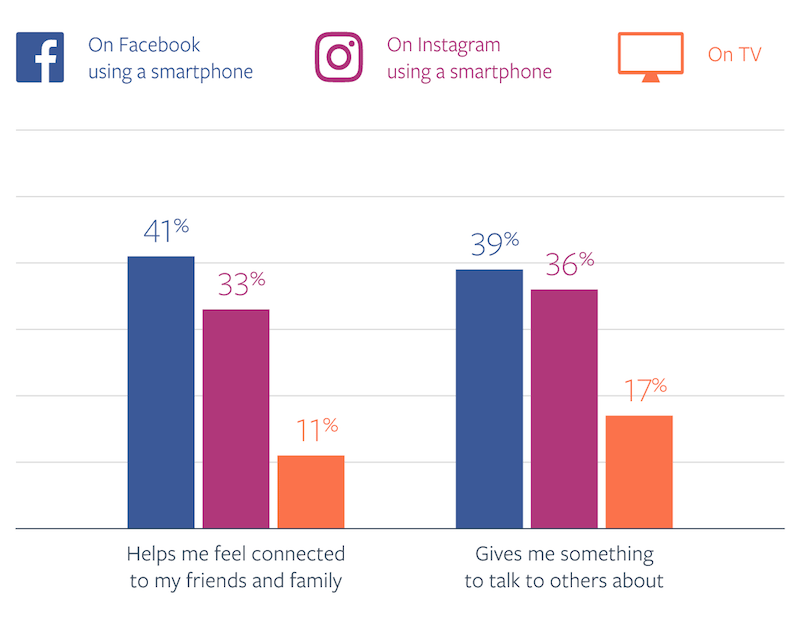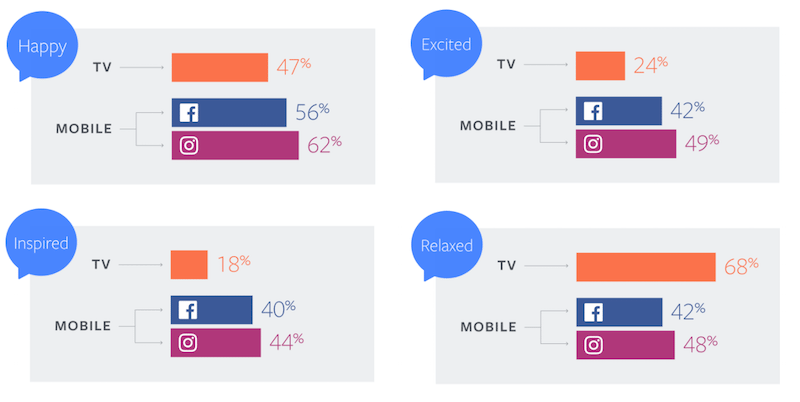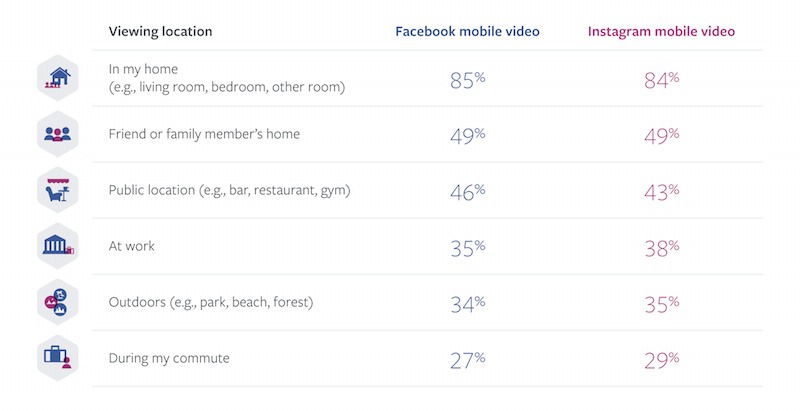
Facebook IQ, the social media giant's consumer and advertising insights team, recently made public the results of a survey it commissioned to understand video trends. The study, based on 1,500 respondents aged 18-64 in the U.S. and Canada, offers some insights and takeaways that help communicators understand what their video's purpose should be on various platforms.
Why Do People Watch Video Content?

It's interesting that Facebook provides us with TV as a point of comparison for the motivation behind video watching. While TV seems to be more of a solitary pursuit, a prime purpose of video on social is to spark interactions with friends and family. In other words, sharing is not just an engagement metric, it's a prime reason for your video content to exist in the first place. Make it shareable!
How Do People Feel When Watching Video?

Again, we see that TV is a more passive medium while people are more likely to be inspired or excited by the immediacy of a mobile social video. The other interesting takeaway, though, is that more than any other reason, people watch mobile social video to feel happy. Yes, the cliche of the viral kitten video fits in here, but don't focus on the furry animals, focus on the feeling they elicit. If your video brings a smile to someone's face, you're on the right track.
But that's not all: Facebook notes that in an earlier study, people reported higher levels of emotional engagement when watching the same video on a smartphone than on TV. So it's not only that content is created for a medium—the medium can amplify the content.
Where Do People Watch Mobile Video?

Overwhelmingly, at home. If you have marketing messages to push, you might take a couple of key points from this finding. Viewers might be receptive to content about home conveniences, but they also might respond to video that taps into their FOMO (fear of missing out)—after all, they're at home instead of out having an adventure.
Check out the full report for other stats, tips and takeaways from Facebook.
Follow Ian on Twitter: @ianwright0101
